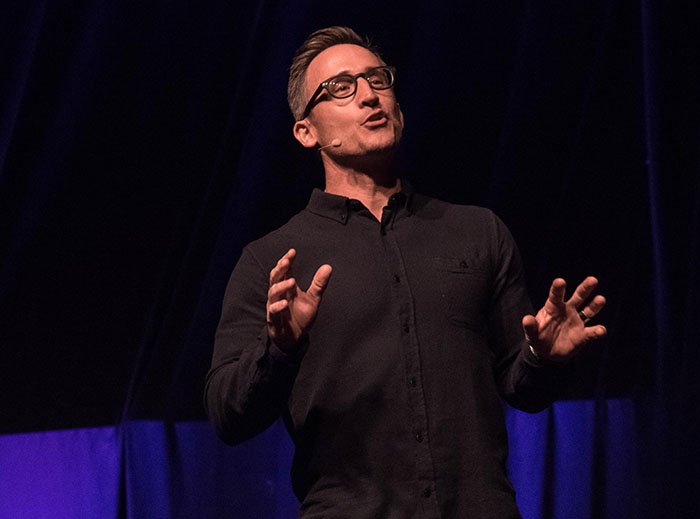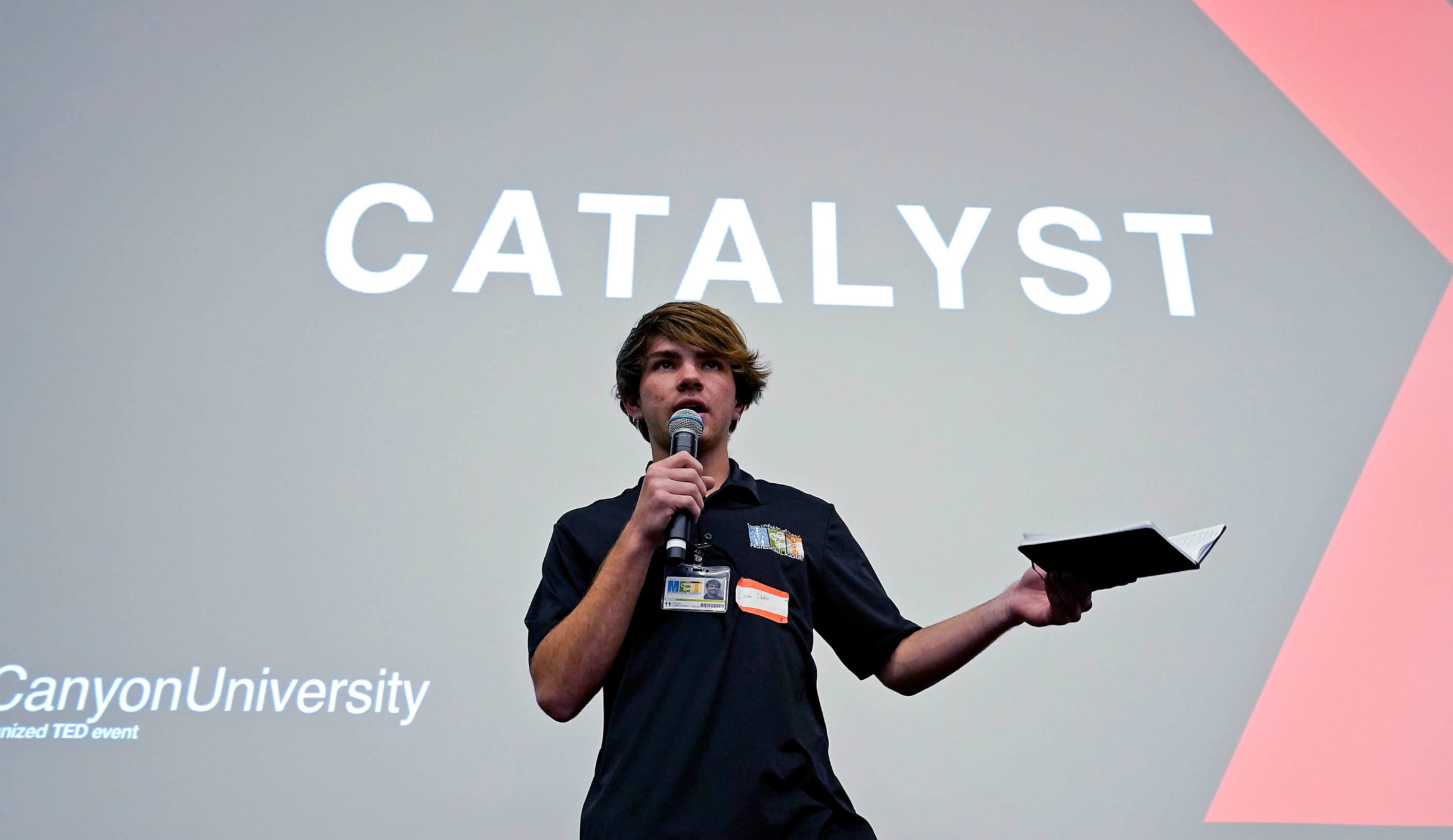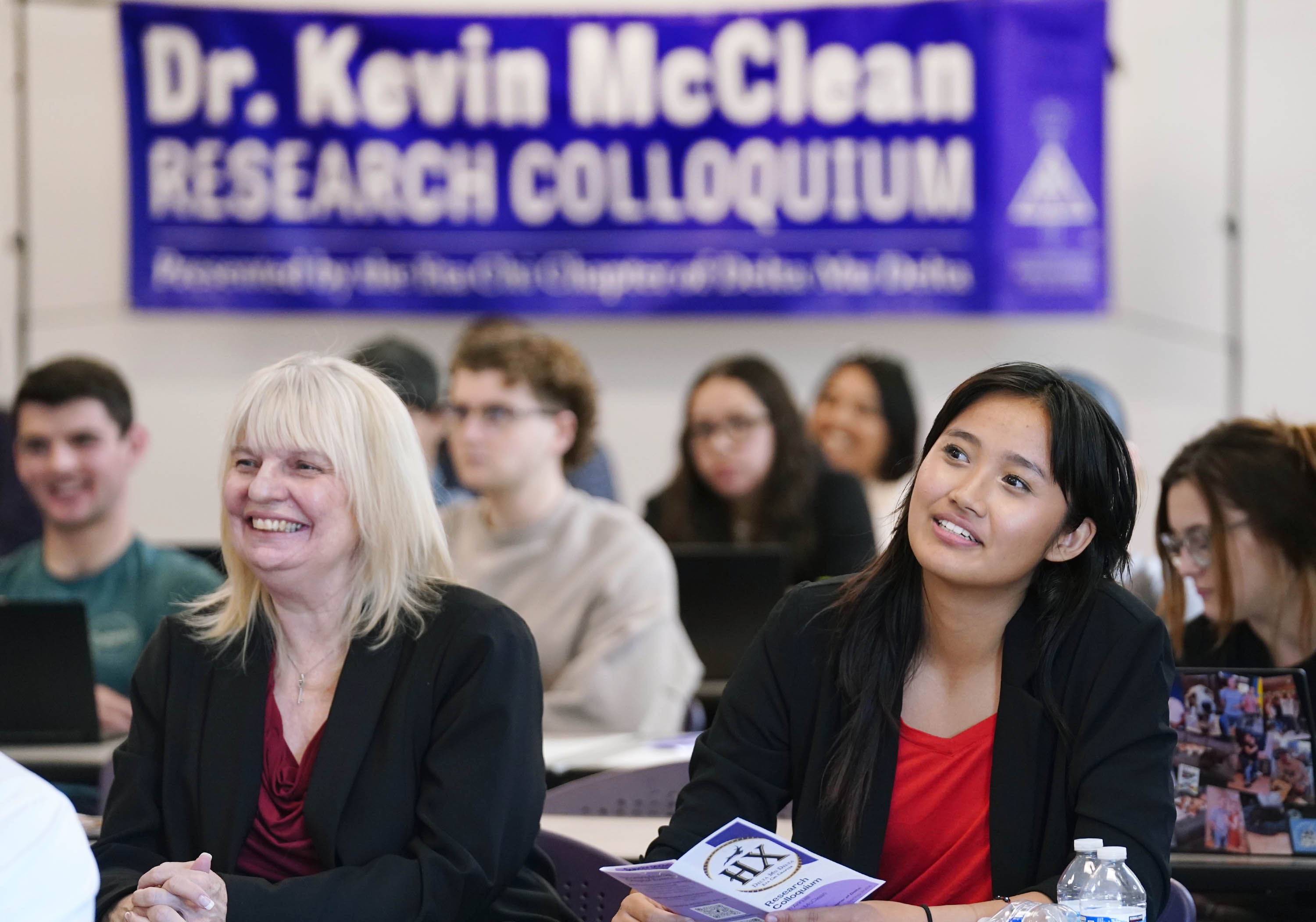
By Rick Vacek
GCU News Bureau
“What is truth?”
Pontius Pilate asked that question as he tried to quiz Jesus on the night before the crucifixion (John 18:38), and these days the same question is raised regularly, especially on social media.
It also came up in Chapel on Monday morning at Grand Canyon University Arena when Brian Kruckenberg of New City Church in Phoenix built his talk around it. His conclusion: The truth is hard to come by unless we’re talking about God’s truth.
“Truth is not created,” he said. “Truth is.”
The most obvious place where truth is paramount in secular life is in a court of law, and Kruckenberg said one of his law school professors taught that “the slightest change in the facts can change the applicable law and the outcome of the case.”
The world has forever focused on looks, intellect and the like when the question of truth arises. God’s truth, by contrast, looks for qualities such as selfless giving and humility.
“For us to find truth and to find authority, we have to submit ourselves to the True King, who has the truth,” Kruckenberg said. “… We struggle submitting to the authority of God. If we operate in the idea that primarily truth comes from us and we are the bearers of truth, then we’ve already missed the mark.”
For confirmation of that idea, look no further than social media.
“The state of affairs in our country is that truth ‘depends,’” he said. “Depends on who you ask. It depends on what you think. More importantly, it depends on what you feel because what you feel, well, that must be true. I would submit to you that the Scripture takes a different stance.”
Even the U.S. Supreme Court is in on the “depends” idea. In its landmark 1992 ruling in Planned Parenthood v. Casey, the court ruled that “at the heart of liberty is the right to define one’s own concept of existence, of meaning, of the universe, and of the mystery of human life.”
Kruckenberg’s view: “The problem with that is, I’m a mess and so are you. And the problem for looking inside myself for truth and authority and deciding is that I’m going to have lots of conflicts.”
We all want to be “rugged individualists,” Kruckenberg said, but we’re not – we instead look for a “hero in the culture to verify what I feel and know.”
Sometimes that works in society. The bravery of Jackie Robinson in breaking baseball’s color barrier and, later, of Dr. Martin Luther King Jr. in fighting for civil rights resulted in the Civil Rights Act of 1964. But there are plenty of other examples where the masses tried to create truth and failed epically.
As Kruckenberg pointed out, the masses wanted Jesus to be put to death and demanded the freedom of Barabbas, who was described in the Bible as a robber or insurrectionist.
“We need to look to Jesus for our authority and for truth because He is the only one that can provide the stability that we need to make sense of this world,” Kruckenberg said. “If we look to our own self or we look to the primary culture of this world to declare what is true, we will eventually become disillusioned.”
The difference, he added, is that Jesus had grace and truth.
“If all you have is truth but you don’t have grace,” Kruckenberg said, “you don’t really have truth at all.”
He urged his audience to not make the same mistake as Pontius Pilate, to not look to the world for the truth. For a simple reason:
“All truth is God’s truth. If someone says something that is true, guess where that truth leads? It leads to Jesus. Why? Because Jesus is the truth. …
“It’s not a popular truth these days, the authority of the word of God and the kingdom of God. But it is the only truth and only authority from which you can root and ground your life to make sense of the world. If you are going to stick your finger in the air to feel the wind of culture to dictate what is true and what is not true, you will find yourself just like Pontius Pilate found himself and wonder what is true.”
● For a full replay of Chapel, including the music by the Chapel band, click here.
● Chapel will not meet next Monday because of fall break. The speaker at the next Chapel, scheduled for Nov. 27, is Danielle Rinnier, GCU’s Director of Spiritual Life.
Contact Rick Vacek at (602) 639-8203 or [email protected].























































